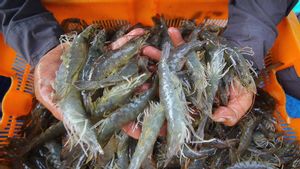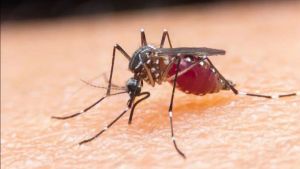
JAKARTA - Researchers have discovered a new source of vitamin D from a tomato gene-edited using CRISPR-Cas9 technology to produce a vitamin D3 precursor.
The engineered tomatoes were able to produce more vitamin D3 precursors when certain molecules that normally convert this vitamin into cholesterol were blocked.
When exposed to UV light, this precursor, provitamin D3 can be converted into vitamin D3, a sunlight vitamin that many people around the world don't have enough.
In terms of taste, these tomatoes are not significantly different from regular tomatoes, instead of representing a new food source of vitamin D with potential public health implications.
The recommended daily intake of vitamin D is 10 micrograms for adults. Researchers say eating just these two new tomatoes could close the gap between how much vitamin D people in the UK consume, and how much they need.
They also found that the amount of provitamin D3 in one tomato, when converted to vitamin D3, was about the same as that in two medium-sized eggs or 28 grams of tuna.
Data shows that about one in five adults and one in six children do not have enough vitamin D per day. Sure, the body creates vitamin D after the skin is exposed to UVB rays, but the main source is food.
"We have shown that you can biofortify tomatoes with provitamin D3 using gene editing, which means tomatoes can be developed as a sustainable, plant-based source of vitamin D3," said study author Professor Cathie Martin.
“Forty percent of Europeans have a vitamin D deficiency and so do one billion people worldwide. Not only are we tackling a major health problem, but also helping producers, because tomato leaves, which are currently wasted, can be used to make supplements from gene-edited pathways."
Then How Do Researchers Create These Tomatoes?
Researchers in Prof Martin's group at the John Innes Center used gene editing CRISPR-Cas9 to alter a gene in tomatoes linked to provitamin D3 that is normally converted to cholesterol.
By editing the gene, they were able to block that process, leading to a substantial accumulation of provitamin D3 in tomato fruit and leaves, without affecting plant growth, development or yield.
In fact, tomato leaves, which are normally a waste material, can now be used to make vegan-friendly vitamin D supplements, or for the fortification of engineered foods.
SEE ALSO:
“The COVID-19 pandemic has helped highlight the issue of vitamin D deficiency and its impact on immune function and our general health. Our provitamin D-fortified tomatoes offer a much-needed, plant-based source of the sunshine vitamin," said Dr Jie Li, first author of the study published in Nature Plants.
"That's great news for people who are adopting a plant-rich diet, vegetarian or vegan, and for the growing number of people around the world who are suffering from the problem of vitamin D deficiency."
Besides, of course the researchers have the desire that this new biofortified crop could help millions of people with vitamin D deficiency, a growing problem linked to a higher risk of cancer, dementia, and many of the leading causes of death.
Finally, they also hope that the change can be engineered into any tomato variety, and that it might work well on other solanaceous food crops such as peppers, chilies, potatoes and eggplant.
The English, Chinese, Japanese, Arabic, and French versions are automatically generated by the AI. So there may still be inaccuracies in translating, please always see Indonesian as our main language. (system supported by DigitalSiber.id)













